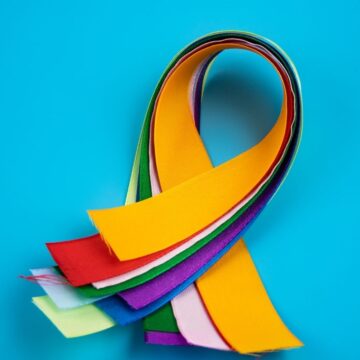
-
- Cancer risk can be increased depending on the lifestyle choices people make.
- Ditching fatty and sugary foods is one way of minimizing your risk of breast cancer.
- Lessening your intake of very hot beverages can also lower your risk of esophageal cancer.
You should know by now that your odds of developing cancer can be affected by the lifestyle changes you make. However, you can still take action to lower your risks. Here are some unexpected causes of cancer that you should know about to help you come up with the best ways of protecting yourself.
1. Ingesting too much sugar

Added sugars typically found in the average American diet may increase risks of breast cancer, according to a study on mice at the University of Texas MD Anderson Cancer Center.
“The mice were fed sugar in doses similar to what Americans eat daily and these mice were genetically predisposed to breast cancer,” says Leslie Bonci, MPH, RDN, owner of Active Eating Advice.
Fructose, which heightens the inflammatory process, is found to be the chief contributor. Avoid excess added sugar from sugary beverages, tabletop sweeteners, candy, and desserts, and choose fruits, which contain natural sugar.
2. Drinking HOT beverages

Hot drinks, according to a paper reviewed in the International Journal of Cancer of Studies, could up your risk of esophageal cancer.
“The theory is that high temperature causes thermal irritation of the esophagus, perhaps predisposing to carcinogenic changes in the esophagus,” Bonci explains. She suggests lessening the amounts consumed to reduce frequent irritation to the esophageal mucosa.
3. Consuming processed meats

Based on the International Agency for Research on Cancer’s assessment on the carcinogenicity of processed meat, eating a quarter-pound portion of cold cuts or meats that have been cured, salted, or smoked can increase the risk of colorectal cancer by 18 percent. Bonci suggests cutting back your intake of processed meats and choosing lean red meat instead for your protein, iron, and zinc source.
4. Drinking too much alcohol

When it comes to your cancer risk, the less you drink, the better. Drinking beyond the recommended serving of one drink a day for women and two for men, can increase your risks of cancers and other diseases, as per reviewed studies in the National Cancer Institute.
Bonci explains that the ethanol in alcoholic drinks breaks down to acetaldehyde, a known carcinogen, which damages DNA and blocks our cells from repairing the damage, as well as affects hormone levels like estrogen, increasing the risk of breast cancer.
Take note: One drink means one 12-ounce beer, eight-ounce malt liquor drink, five-ounce glass of wine, or one-and-a-half-ounce shot of 80-proof liquor.
5. Living a sedentary lifestyle

In addition to cardiovascular disease and obesity, physical inactivity such as prolonged sitting also contributes to higher cancer risks. So, make sure you’re moving daily. Exercise brings more oxygen and blood flow to the muscles and all vital organs, resulting in more cell turnover and improved waste removal, says Dr. Michelle Yagoda, an otolaryngologist in New York City.
6. Being obese

People should know that obesity, which goes along with being sedentary, has been linked to increased risks of cancer of the esophagus, pancreas, colon, rectum, breast, kidney, and thyroid.
“In overweight women especially, fat cells can increase estrogen levels, increasing risk of endometrial and breast cancer,” says Lombardo.
To help minimize your risks, try exercising daily and keep your diet under control.
7. Engaging in oral sex

Human papillomavirus (HPV) is the most common sexually transmitted infection in the United States, of which 7 percent of Americans have oral HPV. From the 7 percent though, 1 percent accounts for those with oral HPV that can infect the mouth and throat and cause oropharyngeal cancers.
While there isn’t sufficient research yet on the best preventive measures for oral HPV, practicing safe sex through condom use and dental dams is deemed beneficial for preventing passing or contracting the infection.
8. Excessive supplements intake

Over-the-counter supplements taken in excess of the recommended dose was linked to increased cancer risk, according to a study at the University of Colorado Cancer Center. Bonci suggests reducing your intake if the recommended amounts of your supplements exceed 100 to 250 percent of the Dietary Reference Intake.
Via The Healthy
